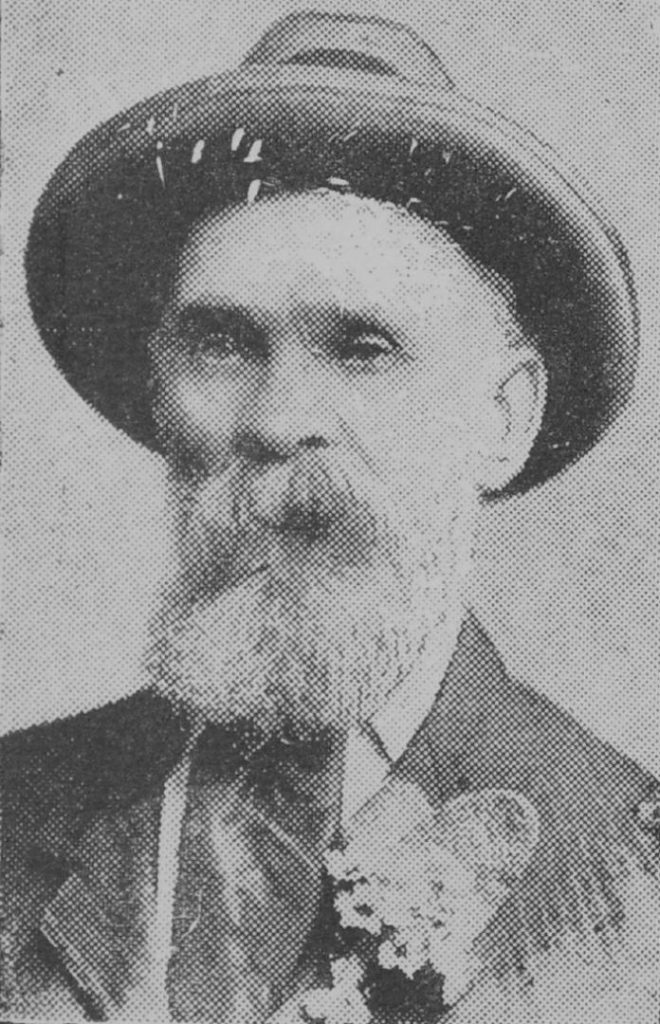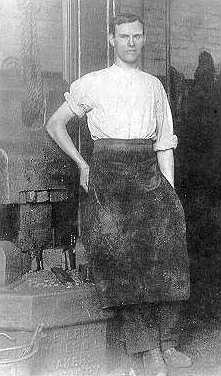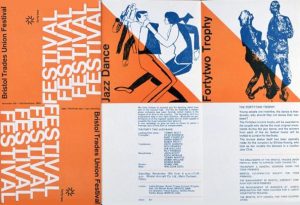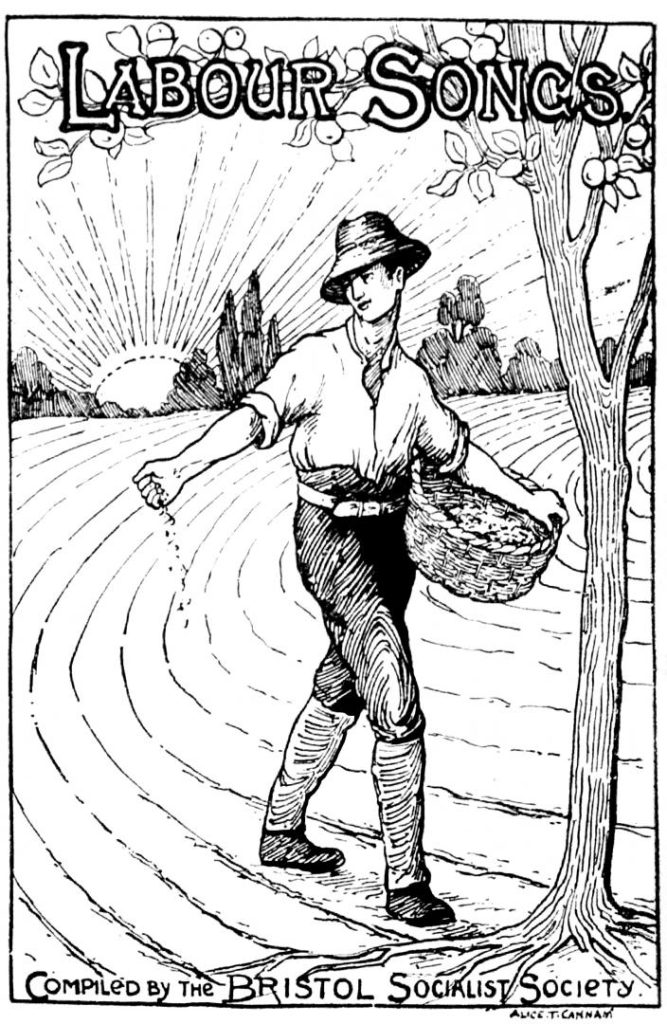 Bread and Roses
Bread and Roses
Radical movements are often accompanied by a flourishing of arts including music, dancing and poetry.
Nineteenth century West Country socialists organised choirs and radical theatre. Singing and poems were part and parcel of every meeting. Radical artists, breaking new ground in their creative work, became involved in radical politics too.
The wave of industrial action in the late 1800s in Bristol encouraged working class people to express themselves in poems and song.
Shoemaker poet
John Wall (1855-1915) was born in Bristol and went to Castle Green Day School until aged thirteen when he became an apprentice ‘clicker’, learning to cut the ‘uppers’ in the boot and shoe trade. He used his factory experience to write short stories, poems and songs.
He became involved in trade unions and was elected Secretary of Bristol Trades Council in 1883. He organised seminars and evening classes for working people. The Trades Council paid scholarships for the University College of Bristol. Attracted to the idea of ‘co-operation’, he founded the Bristol and District Co-operative Society and its first small store in Houlton Street in November 1884.
He realised that strong trade unions and socialism were needed to obtain a more equal distribution of wealth and leisure. His poem of 1893, The Labour-Greed Conflict reflects his growing belief in the class struggle:
Now he finds, to his dismay,
He’s betrayed, reviled, at bay;
So he slowly turns his sleeves up for the fight.
What’re your weapons, simple one?
Justice? Right? Hush! ‘Tis begun!
The death duel between Greed and Labourite.
John Gregory
 John Gregory was born in Bideford, Devon in 1831 and died in 1922. The son of a Wesleyan lay preacher, he settled in Bristol after spending some time in Wales. By trade a shoemaker, he was a lifelong supporter of the labour movement. He was a free-thinker, humanitarian and an open-minded philosopher. Gregory wrote poetry from a very early age on a variety of subjects. His books included Idylls of Labour, Song Streams, Murmurs and Melodies, My Garden, A Dream of Love in Eden and Star Dreams. He sold some of his poems to raise money for working class struggles.
John Gregory was born in Bideford, Devon in 1831 and died in 1922. The son of a Wesleyan lay preacher, he settled in Bristol after spending some time in Wales. By trade a shoemaker, he was a lifelong supporter of the labour movement. He was a free-thinker, humanitarian and an open-minded philosopher. Gregory wrote poetry from a very early age on a variety of subjects. His books included Idylls of Labour, Song Streams, Murmurs and Melodies, My Garden, A Dream of Love in Eden and Star Dreams. He sold some of his poems to raise money for working class struggles.
He became leader of the Organising Committee of the Bristol Socialist Society in 1885 and established the Boot and Shoe Rivetters’ and Finishers’ Society in 1874. He led the Bristol Co-operative Boot and Shoe Manufacturing Society in 1889, helped found the Social Democratic Federation and the Bristol Co-op. As a representative of Bristol Trades Council Gregory was invited to help organise farm workers in Somerset and was a friend of Ernest Bevin. He was against the monarchy and wrote a pamphlet in 1887 called The Jubilee Humbug attacking the expense of Queen Victoria’s celebrations.
Hammerman poet
 Alfred Williams (1877-1930) was a self-taught poet born in the village of South Marston in Wiltshire. He grew up in poverty after his father abandoned his wife and eight children. At fifteen Alfred entered Swindon railway works, where he worked in the stamping shop. He published his first book of poems in 1909, Songs in Wiltshire. Nicknamed the Hammerman poet, his most famous work, Life in a Railway Factory (1915) was written at night after a gruelling day’s work. He dared not publish the book while he worked for the Great Western Railway because the picture it painted of life at work would have earned him the sack. It was published after he was forced to leave the factory due to ill health.
Alfred Williams (1877-1930) was a self-taught poet born in the village of South Marston in Wiltshire. He grew up in poverty after his father abandoned his wife and eight children. At fifteen Alfred entered Swindon railway works, where he worked in the stamping shop. He published his first book of poems in 1909, Songs in Wiltshire. Nicknamed the Hammerman poet, his most famous work, Life in a Railway Factory (1915) was written at night after a gruelling day’s work. He dared not publish the book while he worked for the Great Western Railway because the picture it painted of life at work would have earned him the sack. It was published after he was forced to leave the factory due to ill health.
Alfred Williams wrote thirteen books but died in poverty in 1930.
Unity Players
In the 1930s there was a group of socialists who came together to put on dramatic productions to entertain and agitate. Sisters Joan and Angela Tuckett, led the establishment of the Bristol Unity Players that took drama to new audiences. It was theatre with “a social voice and a social force”. On May Day 1944 it gave a performance of a play called Now is the Day to some 7,000 people in Queen’s Square in Bristol. The pageant portrayed Bristol labour history from 1864 and reflected the optimistic mood towards the end of the war. It ended with words or a poem:
“Awaiting stands a world at bay!
Dearest comrades, now is the day!”

Programme for the 1960s Bristol Trades Council festival of jazz and dance
Joan Tuckett’s health meant she had to pull out of leading the Players and the post-war period saw radical theatre struggle all over the country.
Read more: Workers’ education
 Bread and Roses
Bread and Roses